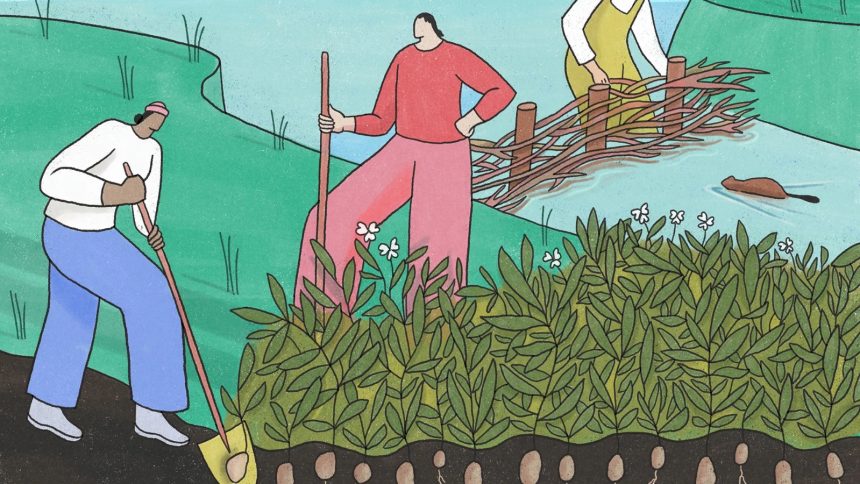This story was originally published by Vox and is reproduced here as part of the Climate Desk collaboration.
Last October, Aiyana James attended her first water potato harvest on the reservation of the Coeur d’Alene Tribe in northwestern Idaho. Despite the unusually cold weather, she was determined to harvest her first water potatoes, a small wetland tuber that is a key traditional food for the tribe. The smell of smoke and drying elk meat filled the air along the shore of Lake Coeur d’Alene, where food booths and educational stations were set up by the tribe. James waded into the frigid water barefoot to dig for the small tubers, while tribal members cooked them in a traditional pit bake on land, along with elk, camas, and other locally harvested foods.
James, who grew up in Portland, Oregon, and spent summers and school breaks on the reservation, was excited to take part in the harvest after moving to the reservation following college. However, the early-season snow dampened the harvest, and tribal leaders spoke about how unusual the conditions were. It had been a dry summer, and the water potato harvest was poor, a trend that has been increasing in recent years.
After their land was impacted by federal allotment policies, Western agriculture, and logging, the Coeur d’Alene Tribe lost significant acreage and struggled to maintain the balance between environmental protection and economic development. Traditional foods like water potatoes and camas started to disappear. Now, extreme drought conditions are worsening the situation.
To combat these challenges, the tribe has been engaged in an ongoing effort to restore important wetlands, bringing back beavers and salmon, restoring native grasses, and repairing stream channels. These restoration efforts aim to restore balance to the landscape, make it more resilient to climate change, and ultimately allow the tribe to rely on important ancestral foods again.
Across the country, ecological restoration is becoming crucial in the fight against climate change. Wetlands, in particular, play a vital role in absorbing carbon from the atmosphere. For the Coeur d’Alene tribe, a healthy wetland is seen as a way to mitigate rising temperatures and revive a rich food source and traditional way of life.
Efforts like the 2022 Infrastructure Investment and Jobs Act and the national goal to conserve 30% of the country’s lands and waters by 2030 are helping to support restoration projects. Indigenous knowledge and expertise are essential to these efforts, as they hold valuable insights into restoring degraded lands and ecosystems.
By focusing on traditional foods like water potatoes, the tribe is not only restoring the environment but also their cultural connection to the land. Restoring these connections and traditions will have lasting effects on the landscape and the community as a whole.






